35 items found: Search results for "frameworks" in all categories x
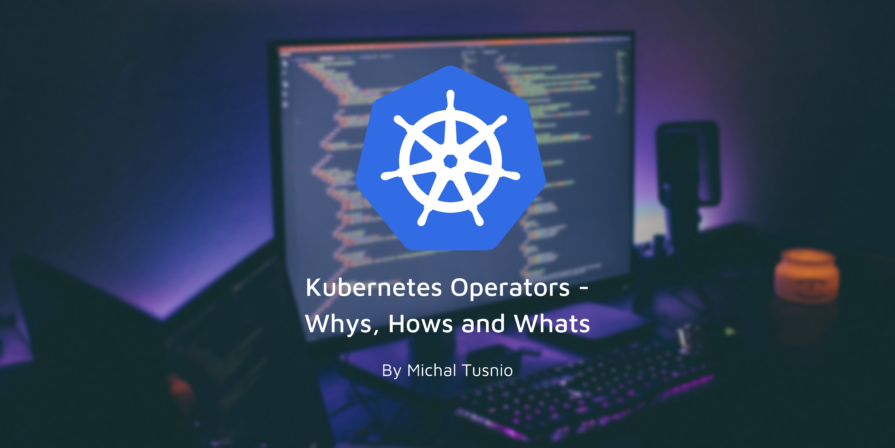
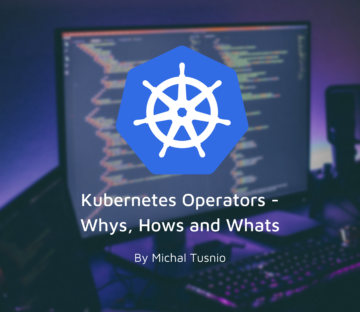
September 27, 2023 | Blog, Kubernetes
Learn to create your first Kubernetes operator by checking out our Senior Consultant Michal Tusnio’s latest blog, “Kubernetes Operators – Whys, Hows and Whats” where he takes you on a journey from zero to operator.

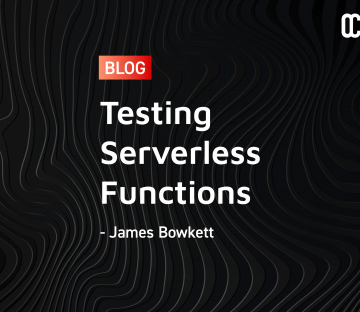
February 11, 2022 | AWS, Cloud, GCP, Kubernetes, Microservices, Open Source, Software Consultancy
Serverless functions are easy to install and upload, but we can’t ignore the basics. This article looks at different strategies related to testing serverless functions.
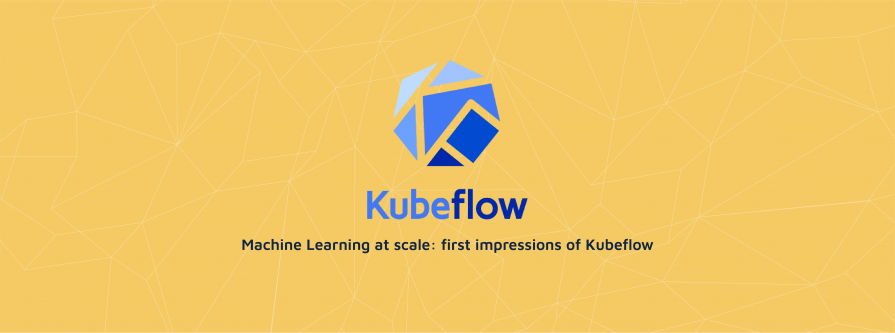
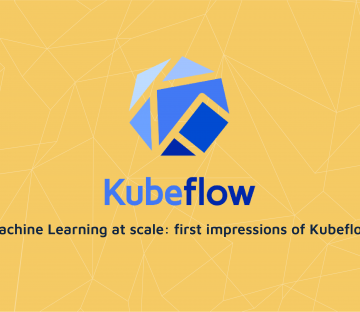
April 20, 2021 | Data Engineering, Machine Learning, Software Consultancy
Our recent client was a Fintech who had ambitions to build a Machine Learning platform for real-time decision making. The client had significant Kubernetes proficiency, ran on the cloud, and had a strong preference for using free, open-source software over cloud-native offerings that come with lock-in. Several components were spiked with success (feature preparation with Apache Beam and Seldon for model serving performed particularly strongly). Kubeflow was one of the next technologies on our list of spikes, showing significant promise at the research stage and seemingly a good match for our client’s priorities and skills.
That platform slipped down the client’s priority list before completing the research for Kubeflow, so I wanted to see how that project might have turned out. Would Kubeflow have made the cut?


April 18, 2018 | Microservices
Quite a few of the anti-patterns we observe today on microservices projects are strongly related to how people approach the problem. Given their nature, these anti-patterns tend to be deeply ingrained and self-sustaining. Addressing them starts with increased awareness and by changing ways of approaching the problem, rather than by the introduction of yet another technical tool or framework.


January 23, 2018 | Data Engineering, DevOps
Machine Learning is a hot topic these days, as can be seen from search trends. It was the success of Deepmind and AlphaGo in 2016 that really brought machine learning to the attention of the wider community and the world at large.
Join OpenCredo at Devoxx UK 2017 We are pleased to announce that we are sponsoring and attending Devoxx UK this year The Devoxx Family welcomes annually over 11,000 developers to events in Belgium, France, UK, Poland, Morocco & USA. Devoxx UK returns to London 11th – 12th May, 2017. They will again welcome amazing speakers and attendees for the very best developer content and […]


May 9, 2017 | Cassandra
Data analytics isn’t a field commonly associated with testing, but there’s no reason we can’t treat it like any other application. Data analytics services are often deployed in production, and production services should be properly tested. This post covers some basic approaches for the testing of Cassandra/Spark code. There will be some code examples, but the focus is on how to structure your code to ensure it is testable!
This blog is written exclusively by the OpenCredo team. We do not accept external contributions.


May 2, 2017 | Cassandra, Data Engineering
My recent blogpost I explored a few cases where using Cassandra and Spark together can be useful. My focus was on the functional behaviour of such a stack and what you need to do as a developer to interact with it. However, it did not describe any details about the infrastructure setup that is capable of running such Spark code or any deployment considerations. In this post, I will explore this in more detail and show some practical advice in how to deploy Spark and Apache Cassandra.
Drawing on over 6 years of practical experience from the OpenCredo team, you will explore worked examples and learn clear lessons in test automation and agile development. The workshop is ideal for members of development teams working to integrate testing, as well as product owners and business analysts who need a better way of communicating their business objectives. The results will be clearer requirements, faster test feedback, and increased confidence in software quality.
Join Us at the Public Sector Show Manchester 2016! We are proud to announce that we are sponsoring and exhibiting at the Public Sector Show Manchester 2016, which will be held on the 22nd of November. The conference is targeted at senior decision makers and managers within central government and the public sector. The Public Sector Show is […]
Join Rafal Gancarz at ServerlessConf London! Serverlessconf is a community led conference focused on sharing experiences building applications using serverless architectures. Serverless architectures enable developers to express their creativity and to focus on meeting user needs rather than spend time managing infrastructure and looking after servers. These architectures build on the work done in many […]
The London Mesos User Group is back – Join us on the 21st of September! London Mesos User Group is back after the summer break, taking place on the 21st of September. This time around, Cloudfare will be hosting the meetup at the office in London and will also be providing the beers and pizza! Agenda: […]


August 24, 2016 | Cassandra
At OpenCredo we are seeing an increase in adoption of Apache Cassandra as a leading NoSQL database for managing large data volumes, but we have also seen many clients experiencing difficulty converting their high expectations into operational Cassandra performance. Here we present a high-level technical overview of the major strengths and limitations of Cassandra that we have observed over the last few years while helping our clients resolve the real-world issues that they have experienced.
Taking place on the 8th and 9th of June in the heart of London at CodeNode, ContainerSched 2016 will focus on the current interest around both containers and schedulers, exploring the core technologies and associated areas of interest such as networking, storage and security.


March 14, 2016 | Software Consultancy
Test automation provides fast feedback on regressions. In order to achieve this tests need to execute quickly, something which becomes more of a problem as test suites grow. This is especially true of tests which exercise a user interface where the interaction with the system is slower.
A good way to address this is to have your tests execute in parallel rather than consecutively. Given sufficient resources this allows your execution time to remain low almost indefinitely as more scenarios are added to the suite.


March 3, 2016 | Software Consultancy
In this post, I’ll be sharing some React/Redux boilerplate code that Vince Martinez and I have been developing recently. It’s primarily aimed at developers who are familiar with the React ecosystem, so if you are new to React and/or Redux, you might like to have a look at Getting Started with React and Getting Started with Redux.


March 3, 2016 | Software Consultancy
JetBrains (the people behind IntelliJ IDEA) have recently announced the first RC for version 1.0 of Kotlin, a new programming language for the JVM. I say ‘new’, but Kotlin has been in the making for a few years now, and has been used by JetBrains to develop several of their products, including Intellij IDEA. The company open-sourced Kotlin in 2011, and have worked with the community since then to make the language what it is today.


January 15, 2016 | Software Consultancy
So, you’ve started to hear a lot about React, the Javascript library developed by Facebook, but is it something you need to investigate? It’s time to distil the signal from the noise, position React amongst its rivals, and provide an indication of where it currently would – and would not – be a suitable fit.


November 1, 2015 | Microservices
To use or not to use hypermedia (HATEOAS) in a REST API, to attain the Level 3 of the famous Richardson Maturity Model. This is one of the most discussed subjects about API design.
The many objections make sense (“Why I hate HATEOAS“, “More objections to HATEOAS“…). The goal of having fully dynamic, auto-discovering clients is still unrealistic (…waiting for AI client libraries).
However, there are good examples of successful HATEOAS API. Among them, PayPal.


August 16, 2015 | Kubernetes
 Over the last few years there has been exponential growth in the interest of containers and schedulers – technology such as Docker, rkt, Mesos, and Kubernetes are now commonplace within the IT domain, and with the rise of microservices, these technologies are set to become even more popular. Skillsmatter are keen to drive forward the discussions and knowledge sharing within this area of technology, and have created a conference focused exclusively on containers and schedulers: ContainerSched!
Over the last few years there has been exponential growth in the interest of containers and schedulers – technology such as Docker, rkt, Mesos, and Kubernetes are now commonplace within the IT domain, and with the rise of microservices, these technologies are set to become even more popular. Skillsmatter are keen to drive forward the discussions and knowledge sharing within this area of technology, and have created a conference focused exclusively on containers and schedulers: ContainerSched!


August 12, 2015 | Microservices
Over the last few months one of my main projects at OpenCredo has involved creating various microservices which are interacted with via REST. We’ve been working with a relatively rich domain model, which in turn has presented a lot of challenges in how to design our various resources. This blog post aims to summarise various techniques and practices which I’ve found helpful in overcoming these challenges.
July 28, 2015 | Microservices
Recently I co-presented a talk at Goto Amsterdam on lessons learnt whilst developing with a Microservices architecture; one being the importance of defining and documenting your API contracts as early as possible in the development cycle. During the talk I mentioned a few API documentation tools that I’d used and, based on feedback and questions from attendees, I realised that this topic merited a blog post. So, the purpose of this is to introduce 5 tools which help with designing, testing and documenting APIs.


July 8, 2015 | Software Consultancy
I was quite excited around autumn last year when Google started to work on a new version of Angular (Angular 2.0) which promised to revolutionise web development. There were rumours that Angular 2.0 wouldn’t be backward compatible with its predecessor, and would be written in Google’s AtScript which is a JavaScript based language on top of Microsoft’s TypeScript. The lack of backwards compatibility raised some concerns, especially for the clients that we had used Angular at. But, lets not get ahead of ourselves here….


May 13, 2015 | Software Consultancy
Listen to Brenden Matthews discuss Elastic Analytics with Spark, Mesos and Docker as filmed at the most recent London Mesos User Group Meetup.
In this talk, Brenden Matthews discusses how he provided elastic analytics to Airbnb and how the Mesosphere DCOS can easily bring the same type of infrastructure to your own environments.




March 11, 2015 | Microservices
 One of the pain points experienced with developing microservices is that it often proves too cumbersome to replicate an environment for local development. This usually means the first time an application talks to its “real” dependencies is when it gets deployed to a shared testing environment. A relatively laborious continuous integration process usually precedes this deployment, making our feedback cycle longer than we would like. In this post I describe a workflow that aims to improve that, using Docker and Docker Compose (formerly known as fig).
One of the pain points experienced with developing microservices is that it often proves too cumbersome to replicate an environment for local development. This usually means the first time an application talks to its “real” dependencies is when it gets deployed to a shared testing environment. A relatively laborious continuous integration process usually precedes this deployment, making our feedback cycle longer than we would like. In this post I describe a workflow that aims to improve that, using Docker and Docker Compose (formerly known as fig).




February 16, 2015 | Software Consultancy
Apache Mesos is often explained as being a kernel for the data-centre; meaning that cluster resources (CPU, RAM, …) are tracked and offered to “user space” programs (i.e. frameworks) to do computations on the cluster.


November 21, 2014 | White Paper
In our latest white paper we cover the high level fundamentals of test automation, discuss the primary problems test automation solves and take a look at the steps required to implement this within your development process – all aimed at improving software delivery.


February 19, 2013 | Software Consultancy
This blog post continues on from Part 1 which discussed types of tests and how to create robust tests. Part 2 will examine techniques to help whip a test suite in to shape and resolve common issues that slow everything down. The approaches in this post will focus on spring based applications, but the concepts can be applied to other frameworks too.


January 10, 2013 | DevOps
Recently I have started looking into SaltStack as a solution that does both config management and orchestration. It is a relatively new project started in 2011, but it has a growing fanbase among Sys Admins and DevOps Engineers. In this blog post I will look into Salt as a promising alternative, and comparing it to Puppet as a way of exploring its basic set of features.


December 18, 2012 | Software Consultancy
The first thing most people think of when they start a project with the good intentions of test driven development is: write a test first. That’s great, and something I would fully encourage. However, diving in to writing tests without forethought, especially on large projects with a lot of developers can lead to new problems that TDD is not going to solve. With some upfront thinking (but not big upfront design!) a large team can avoid problems later down the line by considering some important and desirable traits of a large and rapidly changing test suite.


February 13, 2012 | Software Consultancy
Recently we were approached by a client to do some performance testing of the web application they had written. The budget allowed two days for this task. Ok. No problem. Yes, we can. Naturally I had one or another question though…


February 8, 2012 | Data Analysis, Data Engineering
Most of the important players in this space are large IT corporations like Oracle and IBM with their commercial (read expensive) offerings.
While most of CEP products offer some great features, it’s license model and close code policy doesn’t allow developers to play with them on pet projects, which would drive adoption and usage of CEP in every day programming.


February 3, 2012 | Software Consultancy